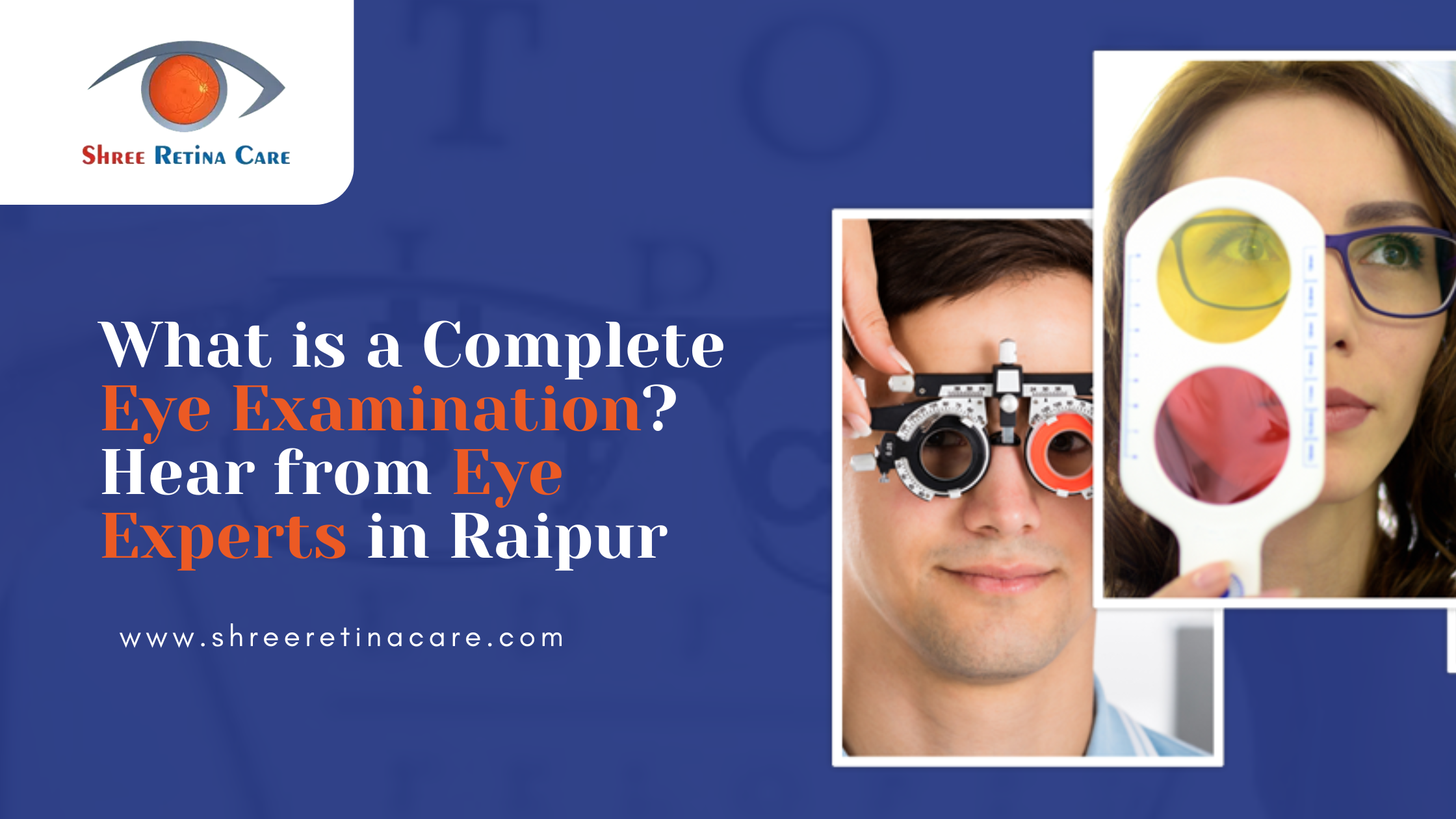What is a Complete Eye Examination? Hear from Eye Experts in Raipur
Do you remember when you had your last eye checkup? Most probably not. It’s common—most people tend to overlook their eye health, just like you. However, not everyone experiences vision problems at the same time or needs surgical intervention. But what if, by bad luck, you find yourself dealing with an eye disorder? It would certainly come as an unwanted surprise.
Think about it: when our legs ache, we look for instant relief. When we have a headache, we take a tablet or apply balm to ease the pain. Similarly, our eyes also require medical attention. Your eyes are one of nature’s most precious gifts, so caring for them should be a priority. This is exactly what the top eye specialist in Raipur recommends. And this is where a complete eye examination comes into play.
What Happens During a Complete Eye Examination?
The top eye specialist in Raipur shares that the complete eye examination is a process involving multiple steps to assess the health of the eyes from a 360-degree angle. Here’s what you can expect:
-
Patient History:
The eye examination starts with assessing your medical history, including any past eye surgeries, prescriptions you are currently using, or any diseases you are suffering from. This helps identify potential risk factors and tailor the eye examination to your specific needs.
-
Visual Acuity Test:
This test measures how clearly you can see. You will be asked to go into the test room with an assistant and read the letters on a chart to assess your vision sharpness and how accurately you can detect them.
-
Refraction Test:
This test checks if you require glasses or contact lenses for clear vision. It helps determine the appropriate lens power and detects issues such as nearsightedness (difficulty seeing far away), farsightedness (difficulty seeing close up), or astigmatism (blurry vision due to an irregularly shaped eye).
-
Eye Muscle Function Test:
This test verifies your eye movements, checking how synchronized your eyes move and work together. It ensures that both eyes are properly aligned and can easily move in all directions.
-
Pupil Examination:
The eye specialist checks how your pupils react by reflecting light into your eyes. This helps identify any neurological issues or eye trauma by monitoring the way your pupils respond.
-
Slit Lamp Examination:
A microscope is used to examine the front part of your eye, including the cornea, lens, and iris. This test helps detect cataracts, eye infections, or other eye abnormalities.
-
Intraocular Pressure Test:
This test measures the pressure inside your eyes, which helps screen for glaucoma. Elevated pressure can damage the optic nerve and lead to vision loss if not treated.
-
Dilated Eye Exam:
Conditions such as macular degeneration or diabetic retinopathy can be detected by enlarging the pupils with eye drops. This allows the specialist to accurately examine the retina and optic nerve to assess the overall eye health.
Why is a Complete Eye Examination essential?
A comprehensive eye examination not only detects vision issues but can also identify the warning signs of other conditions such as diabetes, hypertension, and even certain tumors.
The eye specialist in Raipur shares the reasons why everyone needs to have a complete eye checkup at least once a year:
- Detecting eye problems earlier ensures timely treatment.
- Preventing irreversible vision loss by managing eye conditions such as glaucoma and cataracts.
- Monitoring the impact of chronic diseases on the health of the eye.
- Updating your prescription to ensure that you have clear and comfortable vision.
How Often Should You Have an Eye Exam?
The eye specialist in Raipur addresses that the frequency of eye examinations varies from person to person depending on age, past medical records, and the risk factors associated with age or pre-existing eye diseases.
- Children:
The first eye test should be at 6 months, followed by annual eye tests. If your child is seemingly in good eye condition, tests can be done once every two years.
- Adults (18-60 years):
Eye exams can be done once every two years if the quality of vision is good and there are no issues with regular activities such as reading, driving, etc.
- Senior Citizens (60+ years):
Annual eye examinations are mandatory, as this is the age with high chances of vision disturbances due to hormonal imbalances, especially in women, and aging in both men and women.
- High-Risk Individuals:
If you have diabetes, or your family has a history of cataracts, glaucoma, or hereditary eye weakness, it is advisable to have an eye examination once a year. If you are already experiencing eye problems, then once every six months is recommended as prevention is always better than cure.
Conclusion
Regular eye check-ups are essential in safeguarding your vision and maintaining eye health for the long term. Eye tests are not just about correcting vision; they are about ensuring bright vision for tomorrow.
Imagine a life without vision—it brings only sadness and dullness.
So, don’t trap yourself in darkness by overlooking your eye health. Schedule your appointment today with top eye experts like the eye specialists at Shree Retina Care in Raipur, delivering exceptional care with quality results.
Also read: Eye Specialist in Raipur, Chhattisgarh- Ensuring Clear Vision for Everyone

